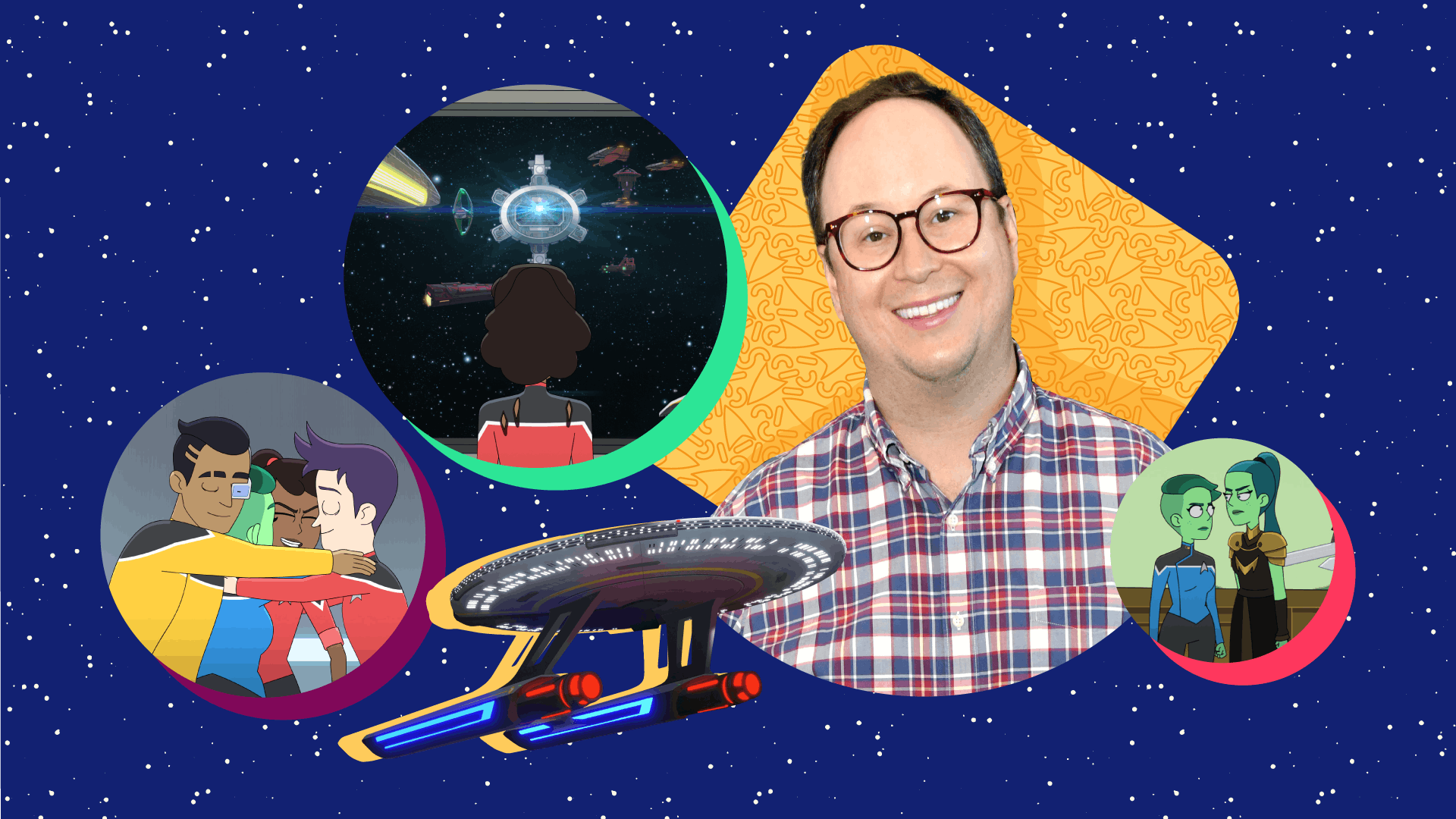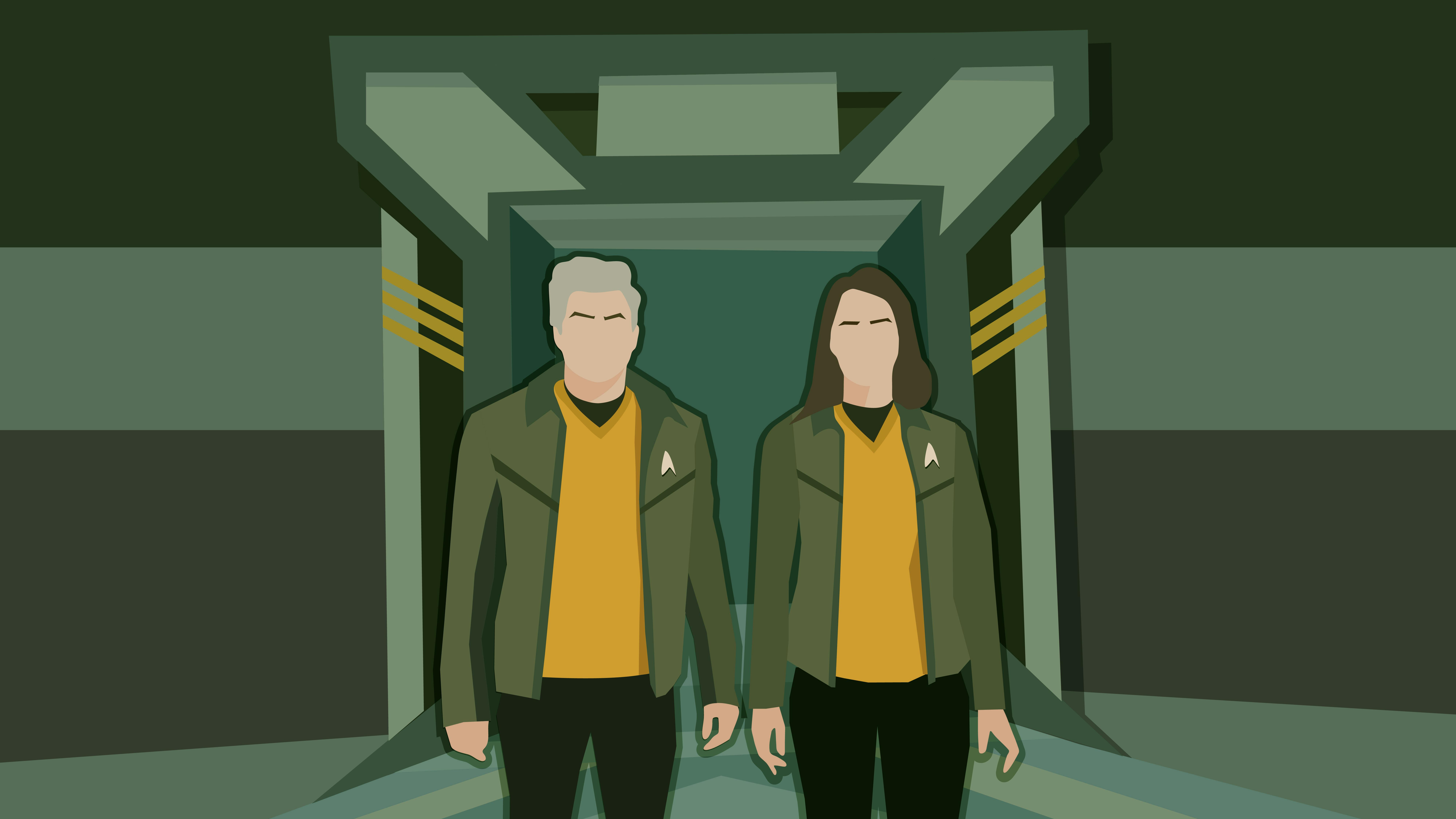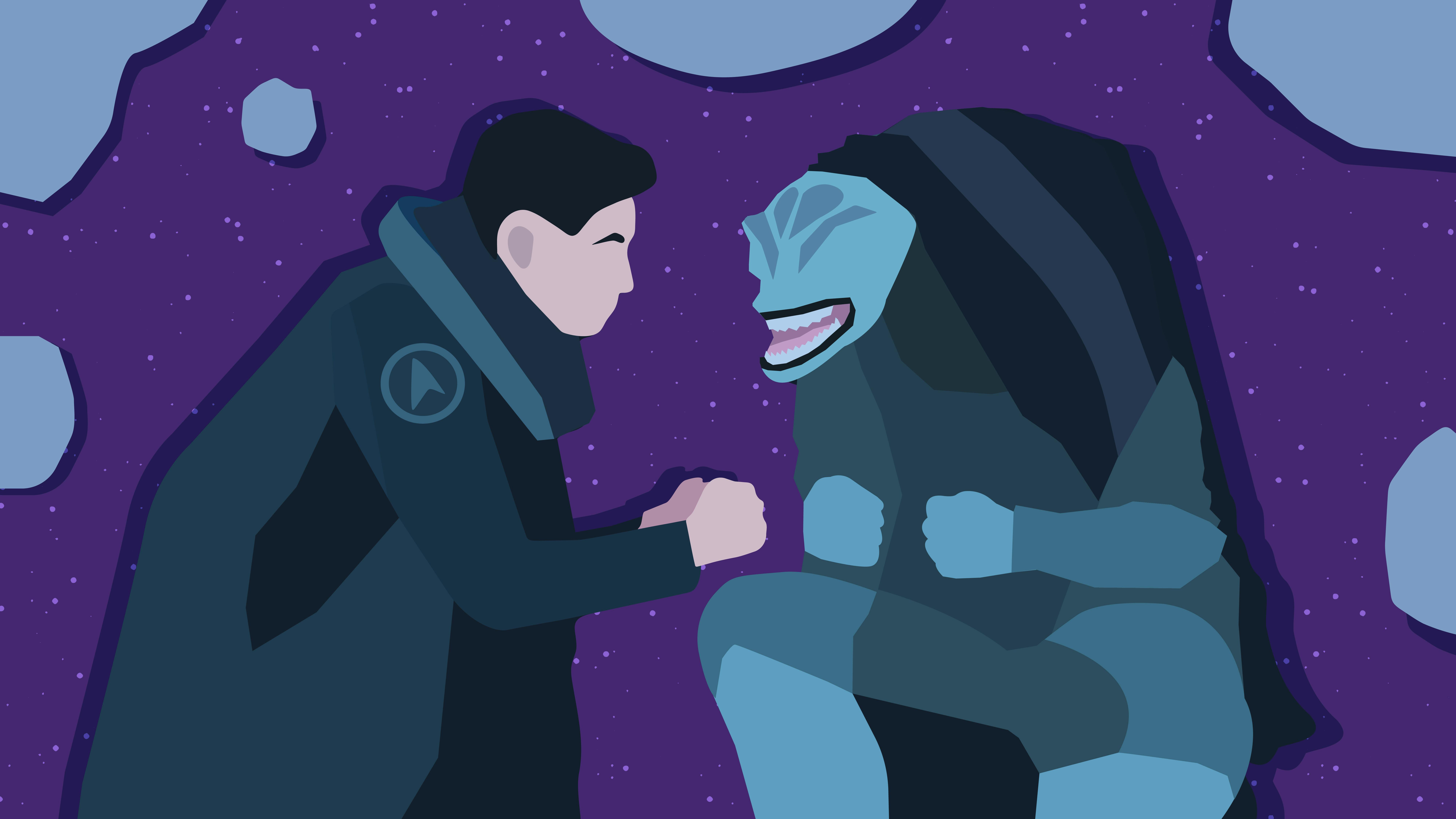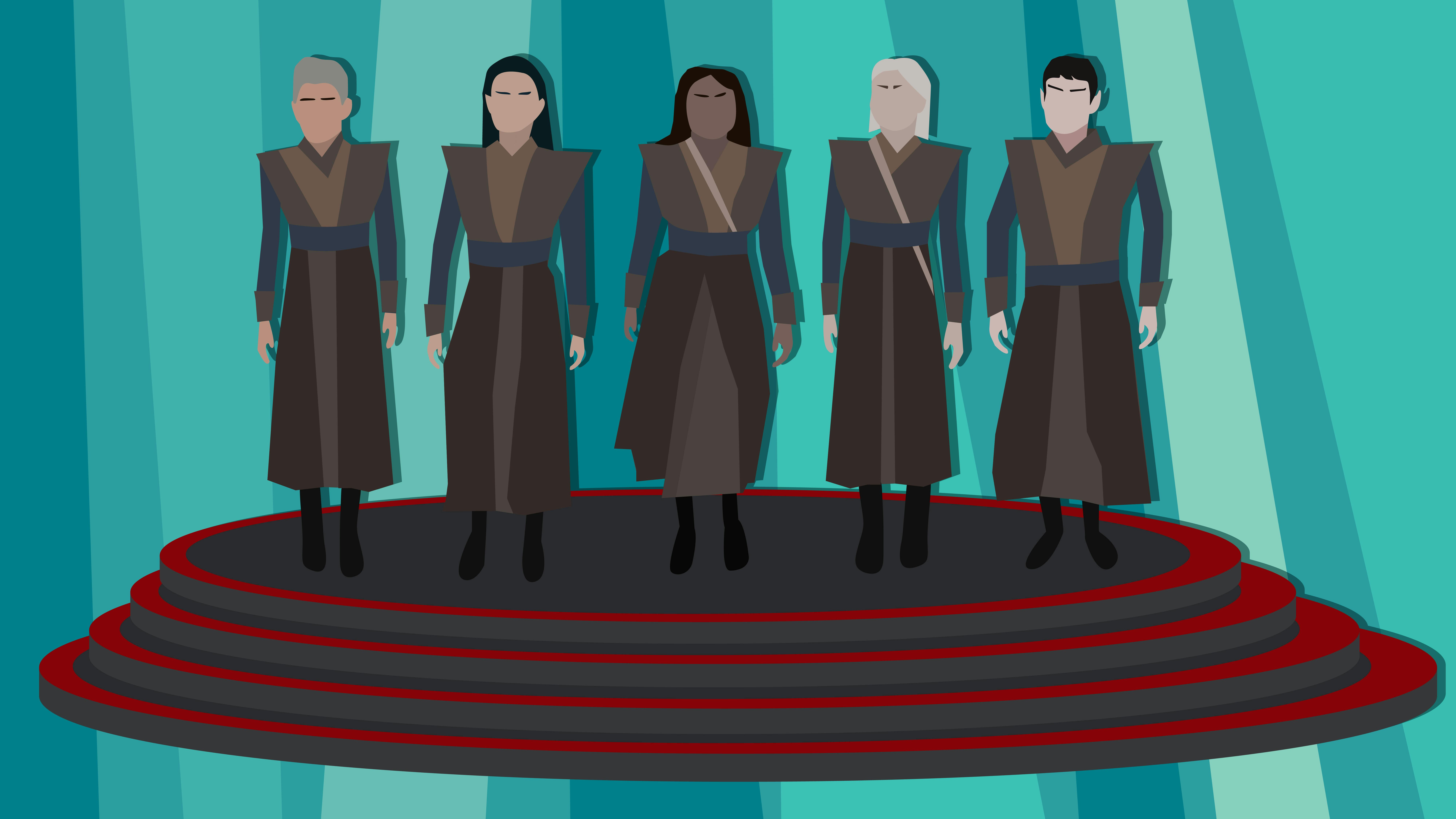Published Mar 25, 2024
What The Mariner-Freeman Family says about Starfleet and the Star Trek Community
Despite its imperfections, Starfleet has always been a hopeful model of the future.
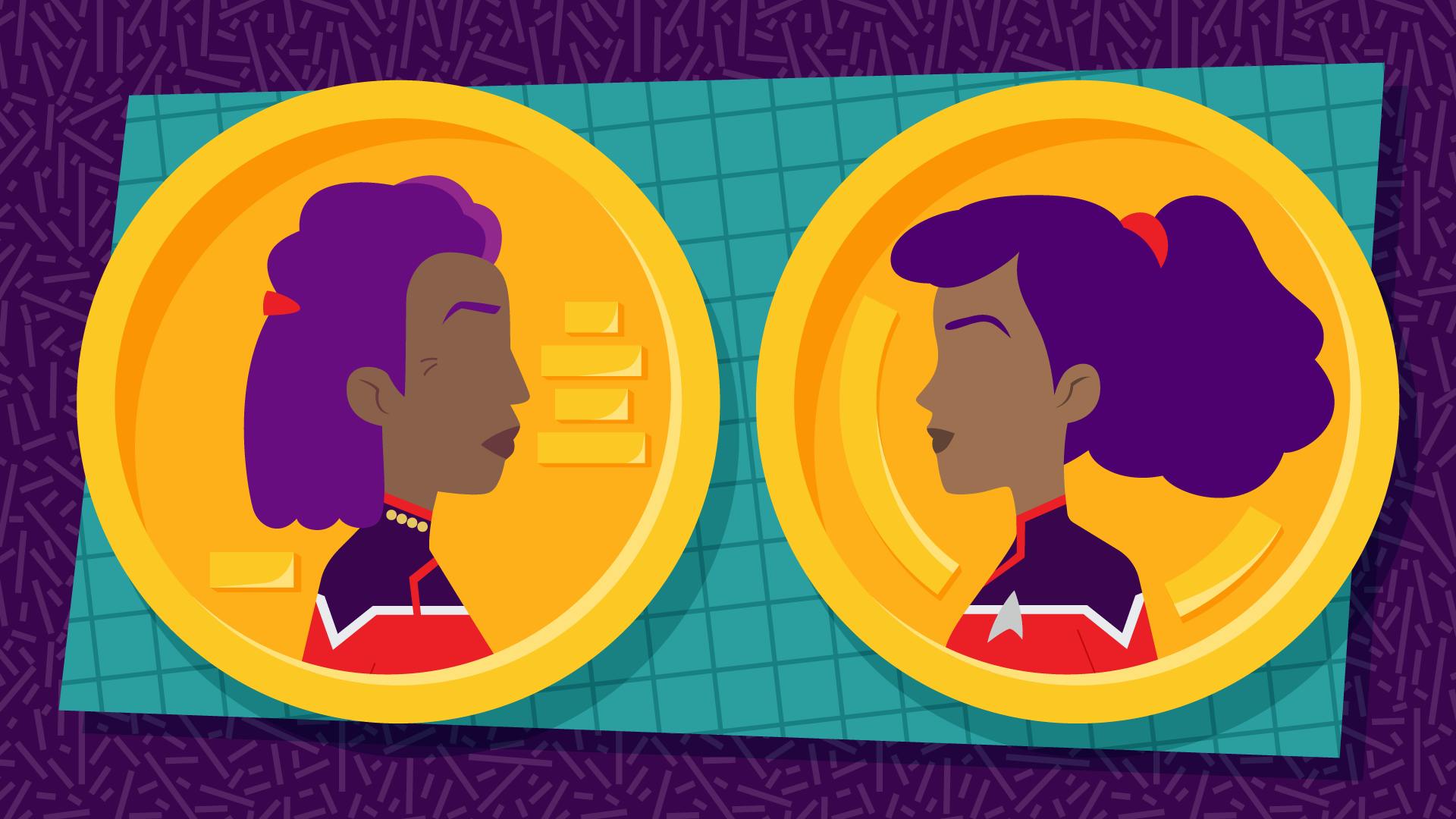
StarTrek.com
Season 3 begins with throwing a potted plant against a wall. Her mother, , is facing tribunal. Her ship is docked. She and her friends are grounded (which also happens to be the title of this aptly-named episode). Her father, Admiral Alonzo Freeman, is insisting she wait and let the Starfleet judicial system do its job — , after all. Everything will be fine.
However, Mariner refuses to take this crisis lying down. Rounding up her friends and a few surprising allies, Mariner plans to break her mother out of Starfleet custody and clear her name. After a handful of daring heists, Mariner nearly does just that... only for Starfleet to absolve Captain Freeman of all charges.
When she meets back up with her family, Mariner’s father scolds her for not listening to him when he said that Starfleet would come through. By the time the credits roll, it seems like the moral of the story is that Mariner was wrong, Starfleet is a morally good organization, and that’s the end of it. Right?
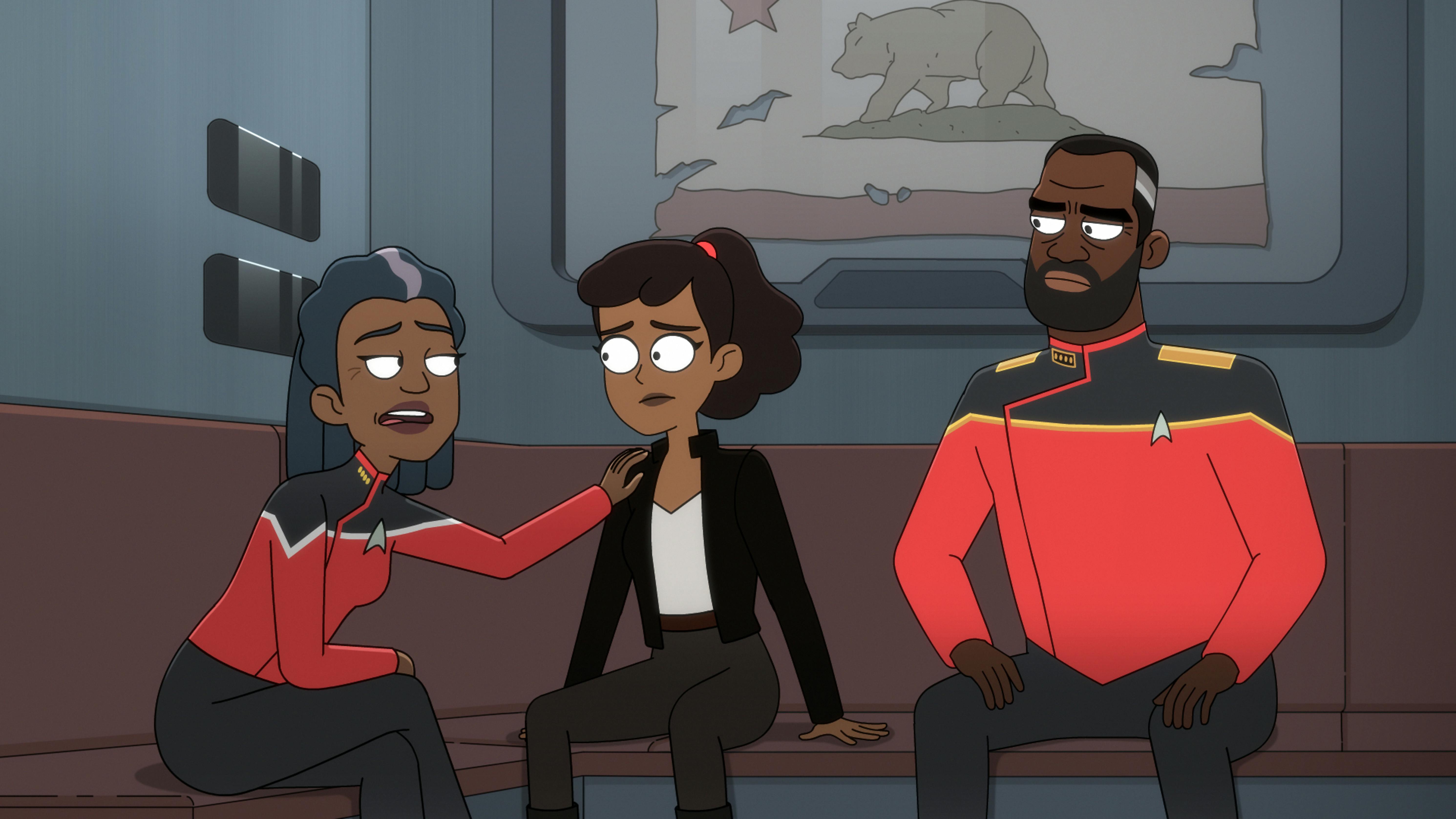
"Grounded"
StarTrek.com
Despite the pro-Starfleet conclusion of "," there’s abundant evidence in other Lower Decks' episodes — and even other Star Trek series — to demonstrate that there’s more nuance to this conversation about Starfleet and its "goodness." In fact, the Mariner-Freeman family itself is a great microcosm of Starfleet perspectives. Depending on which generation you're talking to, they might favor the goodness of the individual officer or the organization as a whole, proving just how complicated the conversation about Starfleet's morality can be.
Let’s start with Ensign Beckett Mariner. As one of the four main characters of Lower Decks, viewers get ample insight into her personality and experiences — especially when it comes to Starfleet. For example, Mariner's personal history demonstrates that she has reason not to trust Starfleet as an organization. In her time as a young officer, she's been a firsthand witness to Starfleet's negligence, such as the choice to cover up the loss of the U.S.S. Atlantis crew simply to avoid embarrassment (""). Instead of admitting they lost so many crewmembers to lice, they said those officers disappeared, thus denying those crewmembers' families closure. Meanwhile, Mariner’s also been known to be friendly with non-Federation personnel, including the likes of the Ferengi Quimp and the Klingon General K'orin ("" and "," respectively). This means she’s heard more outside perspectives on the Federation and Starfleet than the average Ensign — the good and the bad. It makes Mariner quick to act if she feels like Starfleet isn’t doing its best to help people.
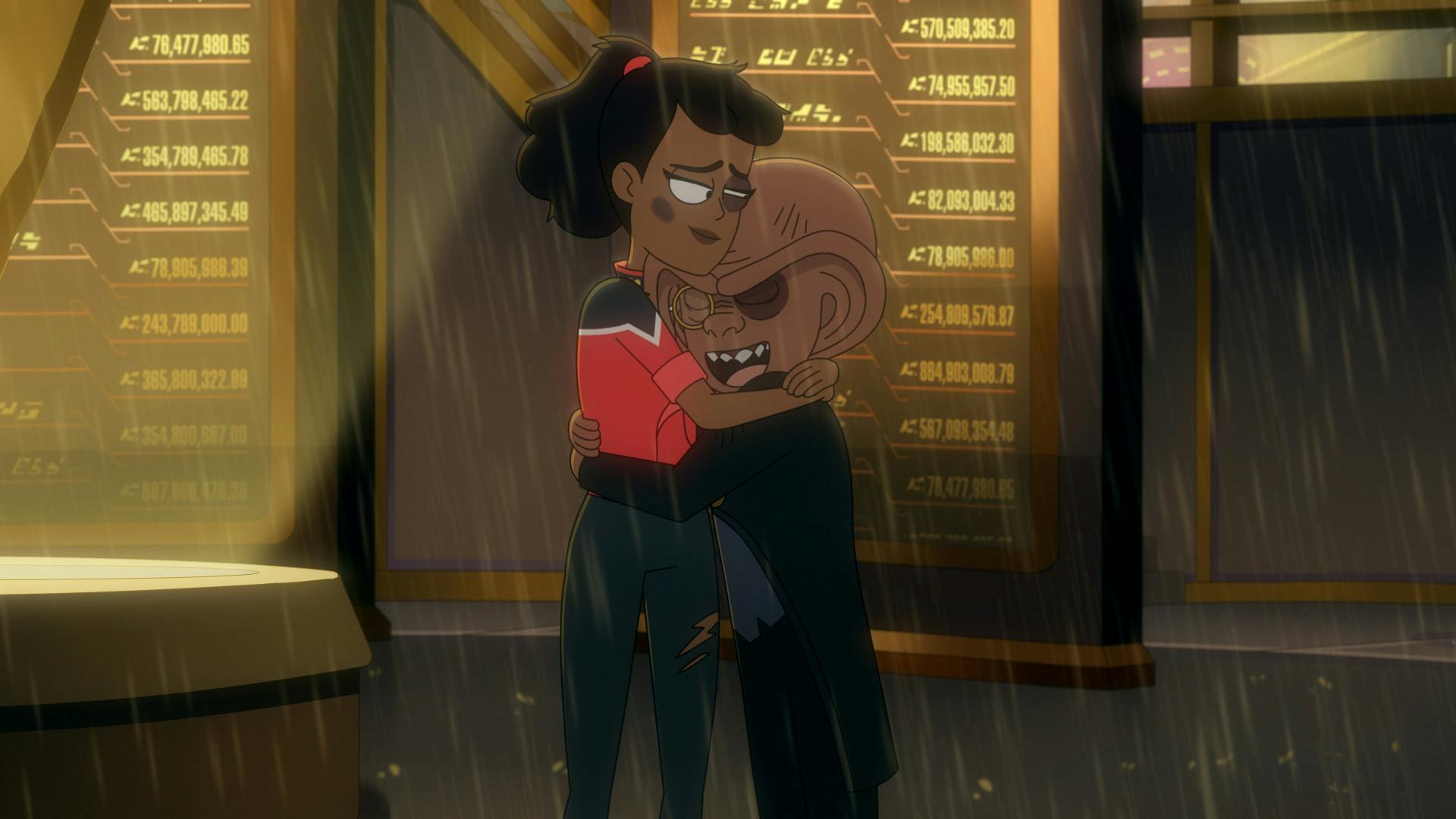
"Parth Ferengi's Heart Place"
StarTrek.com
For example, In the first episode ever of Lower Decks, Mariner broke protocol to give extra resources to the Galardonian farmers (""). She knew that if she waited for Starfleet bureaucracy, some of the Galardonians would starve. She complains to Boimler that the Starfleet hierarchy cares more about a "pension and a place in the history books" more than they do about the little guy. So, she bypassed Starfleet paperwork entirely to get the Galardornians the farming equipment they needed.
However, what’s interesting about Mariner is that her distrust of Starfleet does not extend to its people. Her relationships with her fellow lower decks ensigns as well as her previous peers from the Academy ("The Inner Fight”) or the U.S.S. Atlantis/U.S.S. Quitos ("") have given Mariner a lot of faith in the kind of people that join Starfleet. She often willingly jumps into danger to protect them, even if that danger means trying to kill a fellow officer who she thinks is a parasite ("Cupid’s Errant Arrow"). Meanwhile, influential colleagues like Sito Jaxa still inform her behavior to this day. This firm belief in the individual is something that, by the end of Lower Decks Season 3, you realize her parents (particularly her mother) do not share to the same degree.
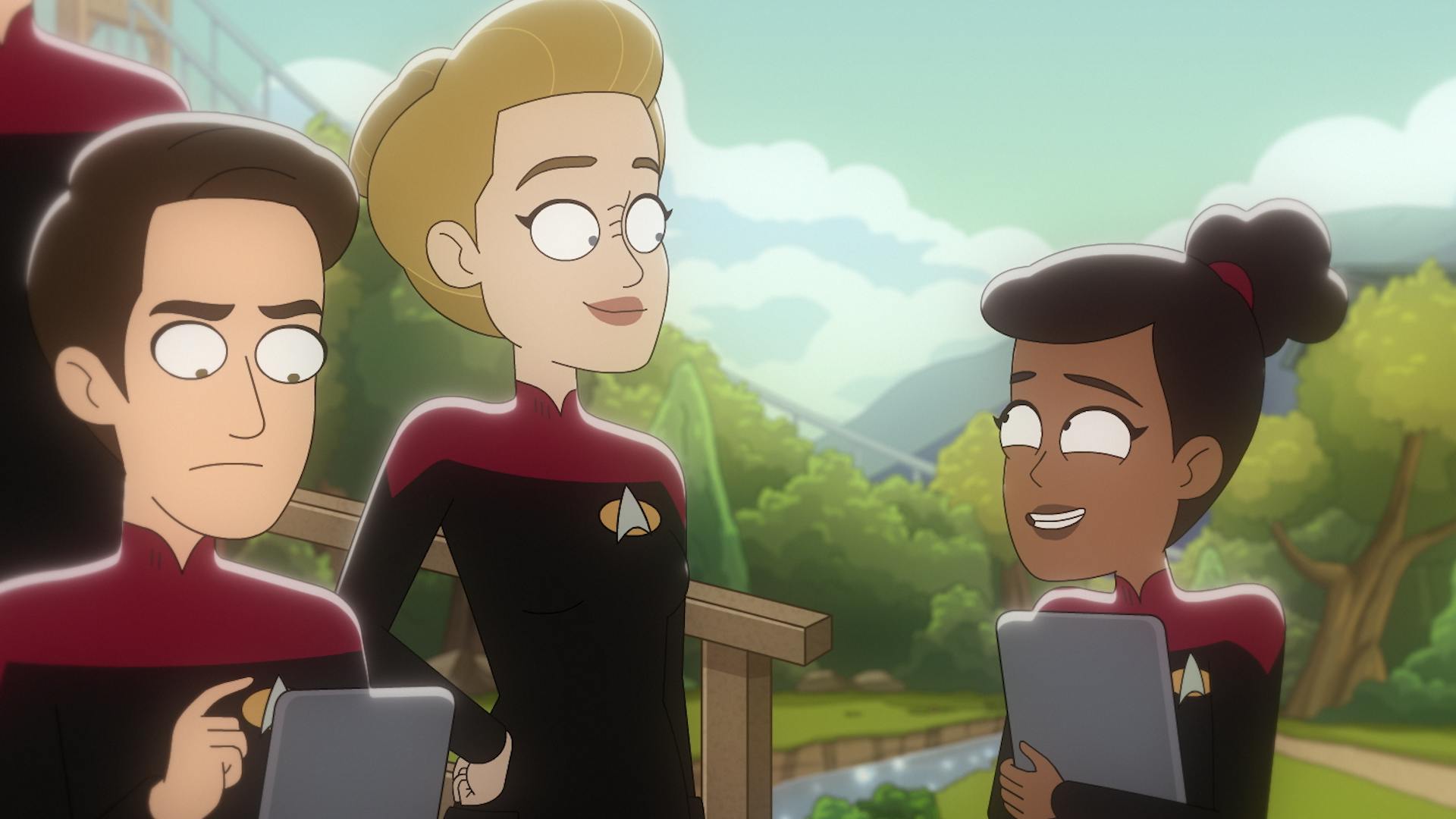
"Old Friends, New Planets"
StarTrek.com
No episode proves Captain Carol Freeman's struggling faith in Starfleet individuals more than the Season 3 finale, "." Once one powerful individual turns on her — Admiral Les Buenamigo and his Texas-class ship Aledo — Captain Freeman very readily assumes that she and the U.S.S. Cerritos are doomed. It never even occurs to her that individual Starfleet officers would defy the Admiral to come and save her. This isn't the first time Captain Freeman doubts the individual Starfleet officer, either. For example, she openly admits in the Season 3 episode "" that she finds many lower decks officers inexperienced and embarrassing, only trusting the "Starfleet elite" to represent the U.S.S. Cerritos. Captain Freeman even goes as far as to reassign her own daughter to Starbase 80 when she thinks she gave a poor individual interview about the ship.
Yet in her direst hour in "The Stars at Night," Ensign Mariner is the one who rallies other California-class starships to save the day and the U.S.S. Cerritos, contradicting Captain Freeman's negative assumptions.
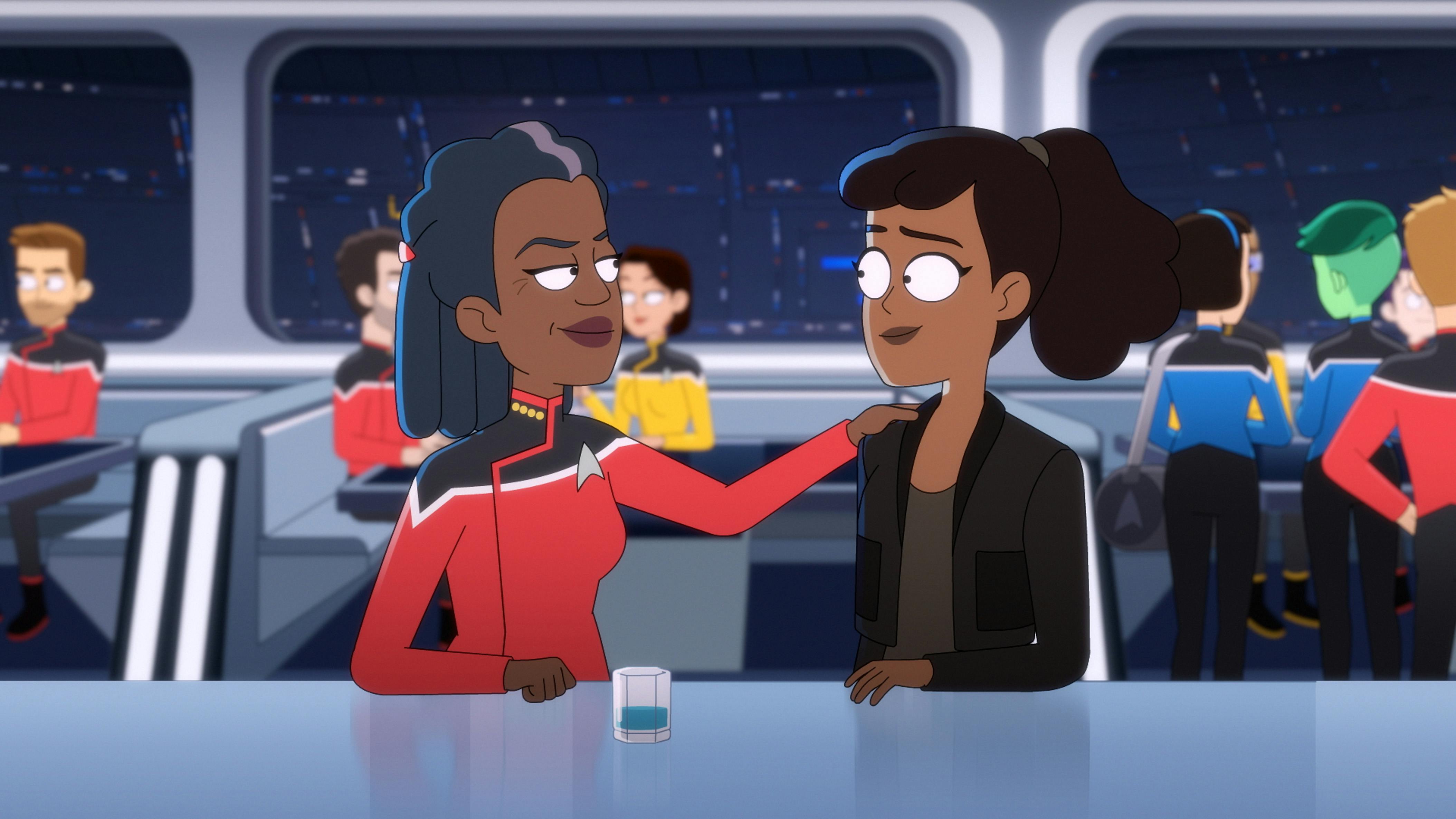
"The Stars at Night"
StarTrek.com
Let’s take a journey through Captain Freeman and Alonzo Freeman's lives to understand why they so readily support Starfleet as an organization but fear the individual. Both of Mariner's parents are career Starfleet officers who consider either starships or the Starfleet San Francisco base their home. They’re friends with Starfleet poster boys like Will Riker and have had successful careers following the rules and working within the lines. Captain Freeman has been nurtured, taught, and rewarded for trusting Starfleet’s rules to succeed. Meanwhile, she’s watched officers beside and below her struggle to accomplish the same because of their rebellious or insubordinate behavior. This of course also includes Mariner, her daughter.
Even in her pet project, , Captain Freeman assumes updating Starfleet protocol and sanctions is the most effective way to improve First and Second Contact — not by bending the rules or going out of her way to get involved in trouble like Mariner does.
Star Trek: Lower Decks - Project Swing By
Ultimately, though, neither Ensign Mariner or Captain Freeman are more right than the other. Throughout Starfleet history, both the individual officers and the organization itself have done tremendous good. And, in Starfleet's many years, there have been events of both individual officers and the Starfleet organization acting corrupt, negligent, and even downright evil.
For the case of Starfleet as a whole failing, the Maquis are a great example. While Starfleet and The Federation understandably prioritized ending war with the Cardassians, they never did enough work to help mediate the conflict between the border and the Cardassian Central Command. Instead, the Maquis grew into an active rebellion group which — over time — infiltrated Starfleet itself and used the organization as a resource to fuel their acts of sabotage. Speaking of, Starfleet has had a persistent problem with allowing systemic infiltration into high positions of power and not noticing it until it's almost too late ("," "").
On the other hand, during her time in Starfleet, Mariner has made friends with the kind of people that get hurt the most by these oversights. The red shirts, the lower decks, the fringe farmers, or non-Federation peoples.
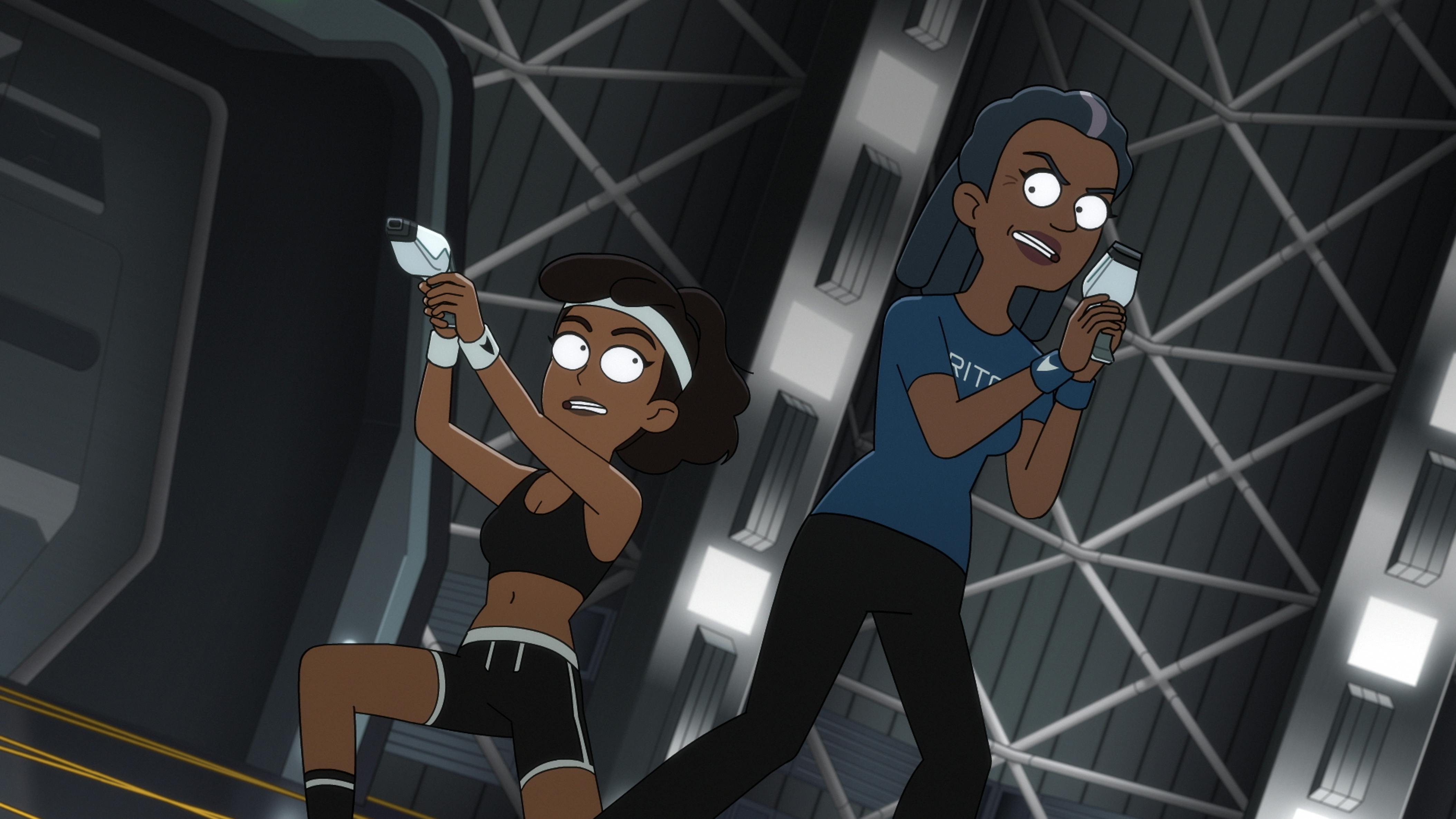
"wej Duj"
StarTrek.com
In 's premiere episode "The Battle of Binary Stars," Michael Burnham says in reference to her defiance of her captain’s orders, "You wanna know how I turned on you? I believed saving you and the crew was more important than Starfleet's principles." That’s exactly the kind of mindset that Mariner finds herself more aligned with even if, like in Burnham's case, it doesn’t always fit within Starfleet regulations.
Sometimes, though, Starfleet does go above and beyond its own rules to make positive changes in the galaxy and protect its own people. That singular fact is why Captain Freeman and Admiral Freeman have such faith in Starfleet.
For example, in "," Captain Freeman takes a dangerous risk by agreeing to 's swindler’s deal... as long as he brings Qo’noS, the Klingon home world, into the Federation. Thankfully, this encourages Rom to begin real, above-board negotiations with Starfleet. But despite the risk — what if Nagus Rom had managed to effectively conspire to make it happen? — Captain Freeman got praised for her quick thinking; AKA breaking rules as long as it didn't cause Starfleet any problems.
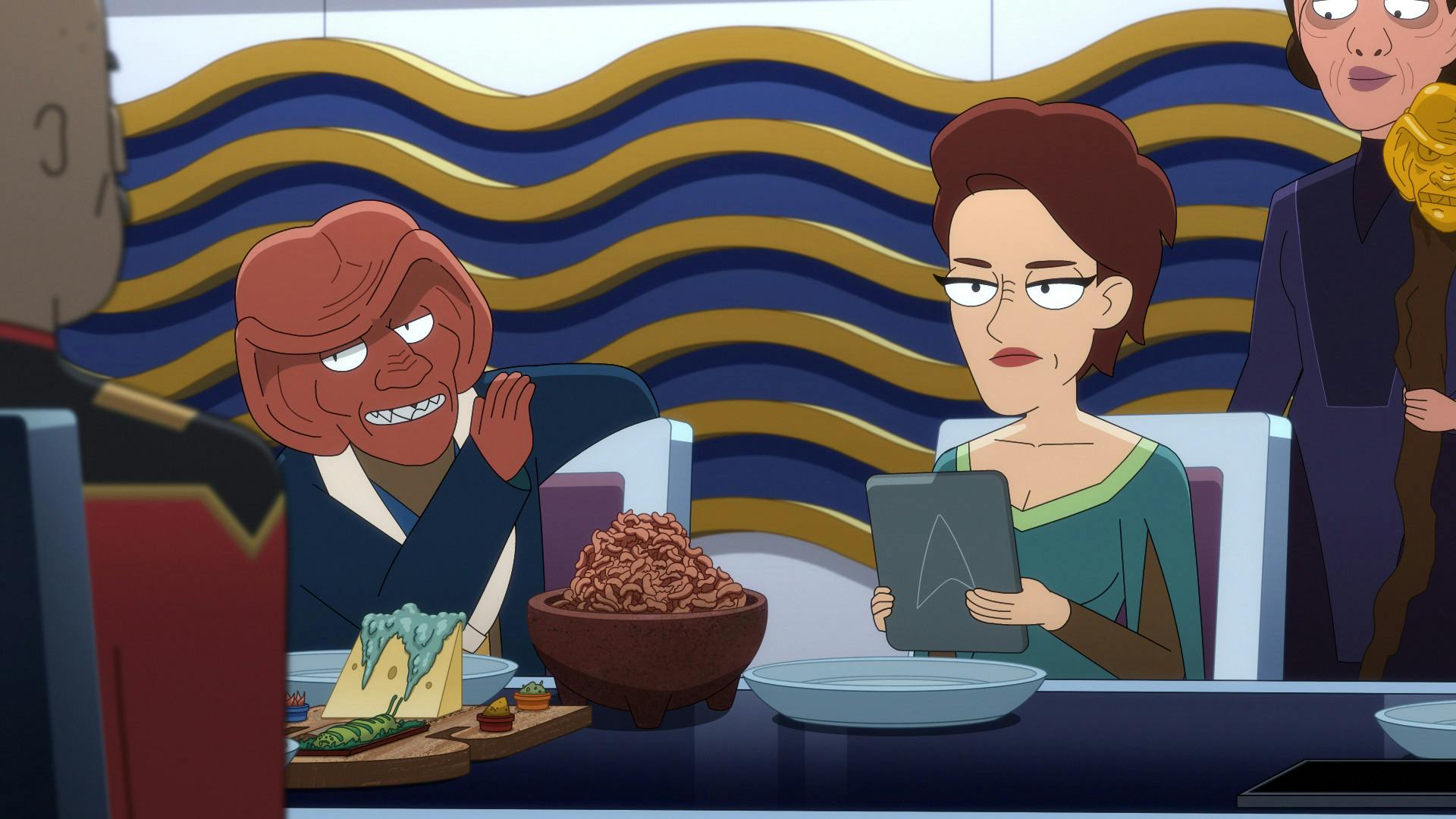
"Parth Ferengi's Heart Place"
StarTrek.com
However, Starfleet has also risked conflict with major civilizations simply to protect one officer — Wesley Crusher in "," Miles O’Brien in "," or Worf in "." While a captain or commander often led the charge, Starfleet tended to ultimately support them. Even in the severe case of situations like ", ," Starfleet put Spock on fair trial and then ultimately exonerated him, despite the many Starfleet rules he broke for Captain Pike. So, Mariner's parents — Starfleet vets who feel like Starfleet is where they belong — have no doubt Starfleet can make the best decision for "the Greater Good" most of the time.
Meanwhile, Captain Freeman has historical evidence to be anxious about the actions of individual Starfleet officers. When talking about the aforementioned Maquis, Sisko's security officer, Michael Eddington, single-handedly stole secrets, smuggled weapons, and hurt fellow officers to help the Maquis resistance before he was discovered (""). Even on her own ship, Peanut Hamper proved to be unhelpful and individualistic, which led to the death (and later traumatic resurrection) of her beloved security officer Shaxs (""). Captain Freeman knows and fears just how much damage one rogue officer can do.
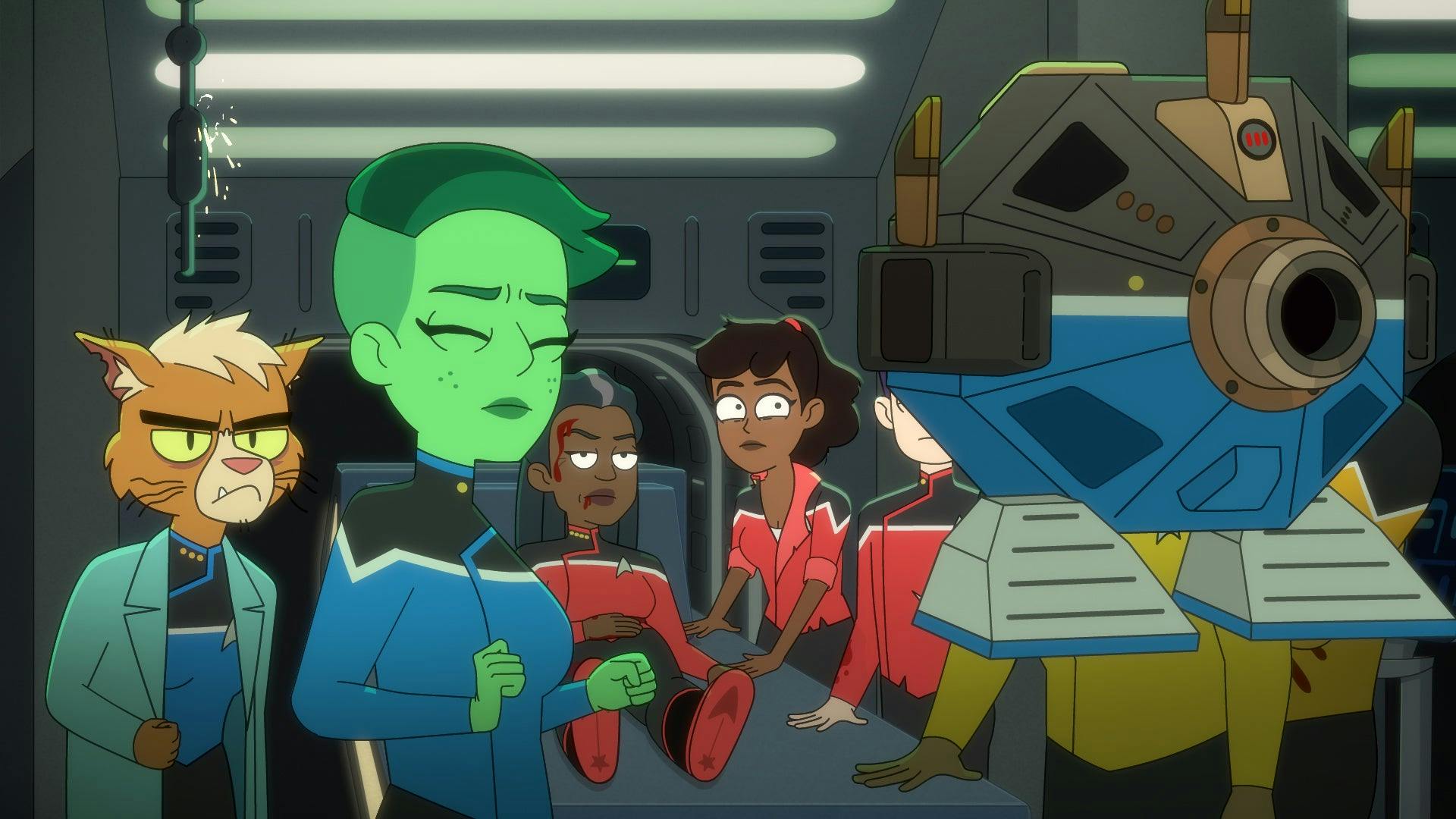
"No Small Parts"
StarTrek.com
In this way, both Beckett and her parents represent some of the differing perspectives in the Star Trek community. Some think of Starfleet as a beacon of hope while others see Starfleet as an often-corrupt organization. Some take pride in the goodness of officers while others discuss the villainy that comes with power, even in Starfleet. Multiple writers and video essayists like Luke McKinney, Steve Shives, Lore Reloaded, Venom Geek Media, and have all come to bat for either side of the conversation, discussing Starfleet's principles, officers, and incidents.
Ultimately, neither perspective is wrong. Starfleet's rules and ideals have wronged entire civilizations "outside their jurisdiction" and saved entire planets from imminent doom. Starfleet members have been heroic and well-intentioned and they’ve completely failed or even exploited people who needed to help. Starfleet was made to do good in the galaxy, but also still has a long way to go to repay the mistakes they’ve made or the injustices they’ve allowed. In Lower Decks alone, if the higher-ups kept a better eye on Starfleet negligence, Buenamigo's rise or the underestimation and then escalation of the Pakled incidents could both have been stopped. Yet at the same time, without Starfleet's (and the Cerittos') positive interventions, the Betans would still follow the dictator A.I. Landru ("No Small Parts"), Areolus would’ve been doomed ("A Mathematically Perfect Redemption"), and would’ve started an ensign war with the Federation ("").
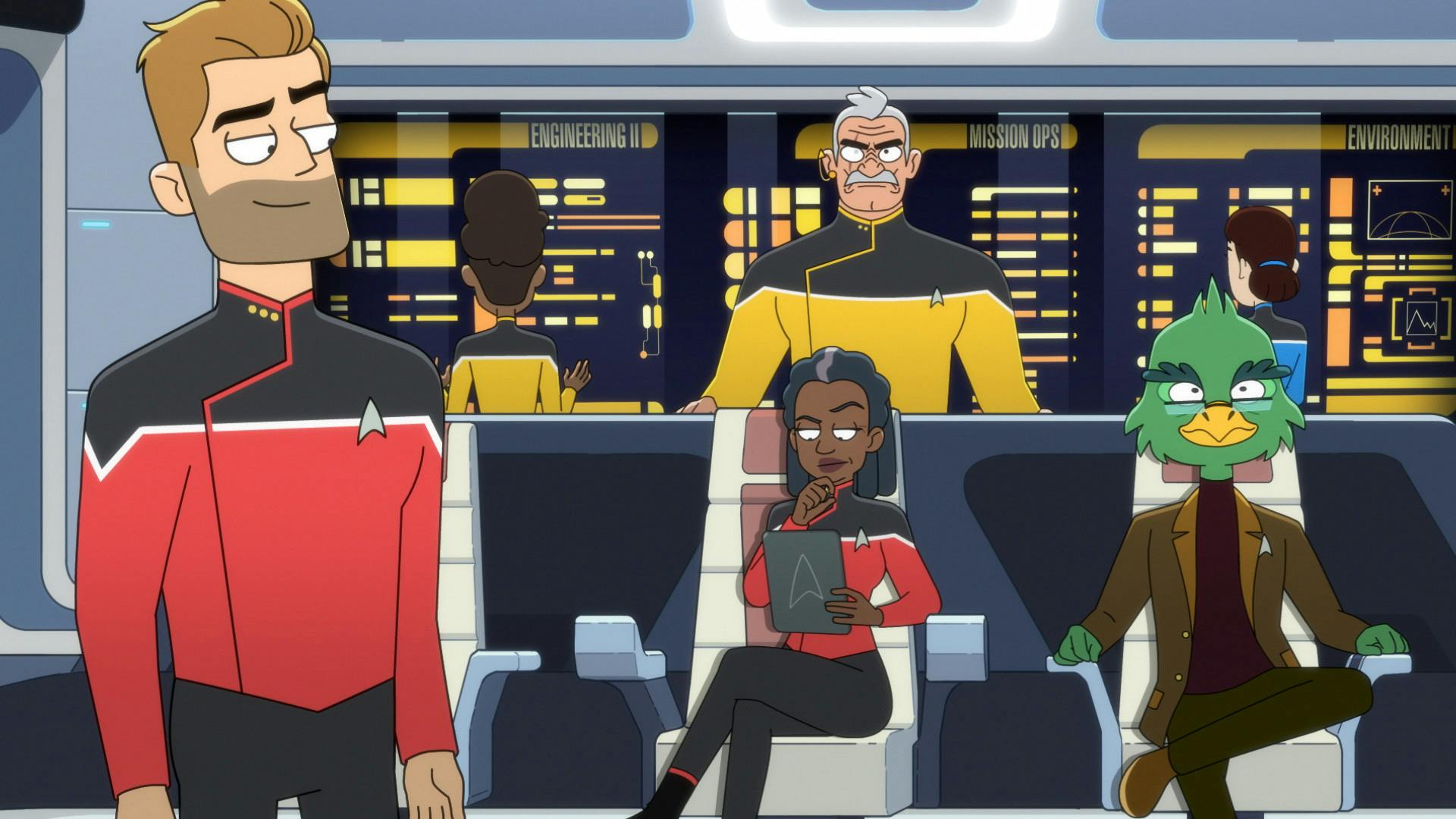
"Twovix"
StarTrek.com
Both Ensign Mariner and her parents have every right to believe in and be critical of Starfleet and its officers. But there needs to be a balance in these perspectives to get the most honest view of Starfleet.
Starfleet — and by extension The Federation — has always been a hopeful model of the future. All members of the Mariner-Freeman family (just like the Star Trek community members and writers) have valid points about Starfleet's imperfections in its leadership, organization, and people. At the same time, no organization or person can be perfect. The best one can do is lend an honest ear to criticism while still working to be better. The Mariner-Freeman family's experiences prove that Starfleet can be both — flawed and altruistic; selfish and galaxy-changing.
From its individuals to its organization, Starfleet is a symbol of hope that always needs improvement.

